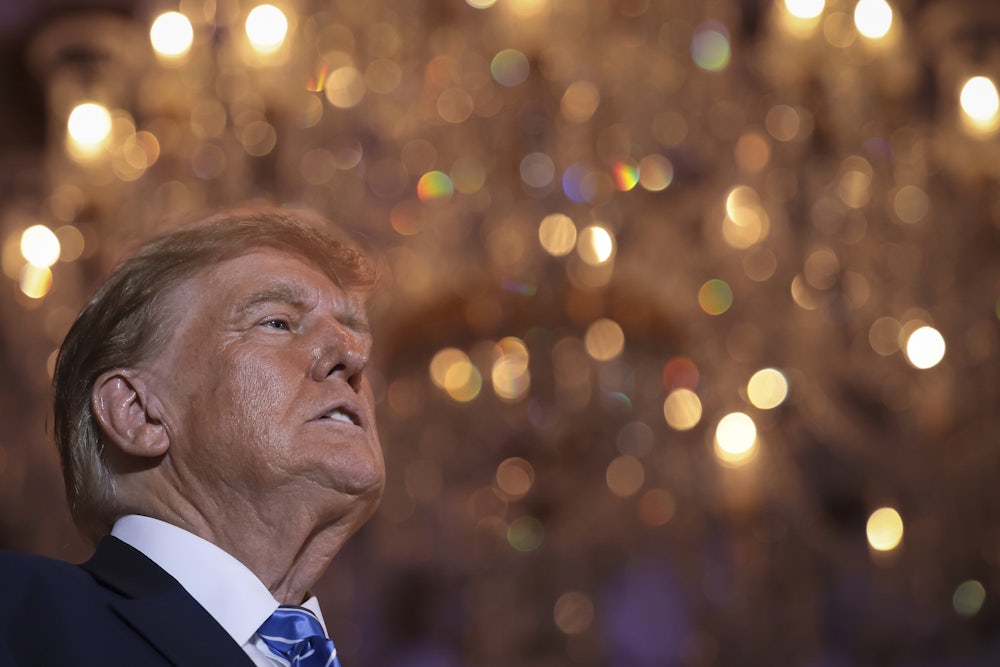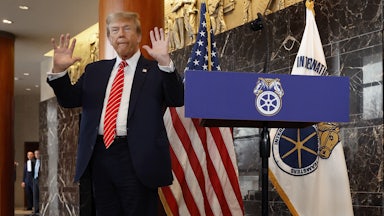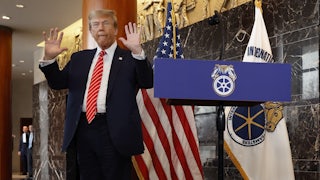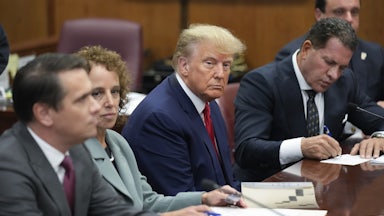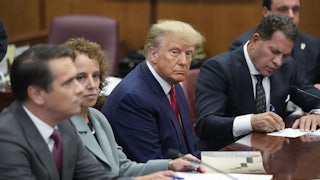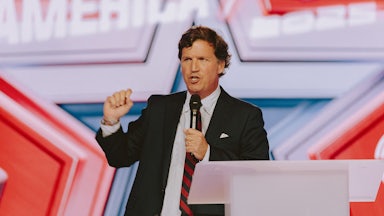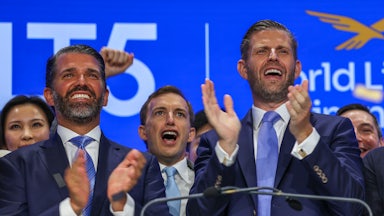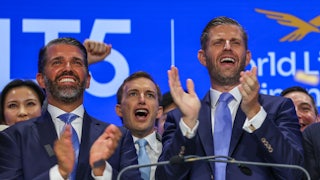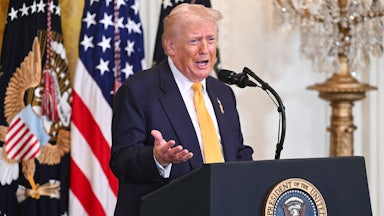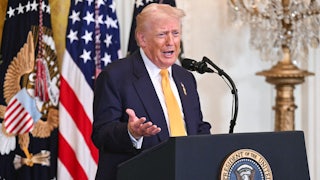“Thank you for calling Brunswick Companies,” the recorded message said. “For bonds $500,000 and higher, press one.” I pressed one and got Mark Levinson, senior vice president, who kindly answered my questions even though I wasn’t bargain-hunting sureties. Levinson wasn’t surprised to hear my interest stemmed from former President Donald Trump’s unsuccessful struggle to secure an appeal bond against his $454 million fraud penalty. USA Today rang Levinson about it last month, after New York state Judge Arthur F. Engoron handed down his ruling in the case.
On Monday night Trump raged on Truth Social: “The Bonding Companies have never heard of such a bond, of this size, before, nor do they have the ability to post such a bond.” The editorial page of The Wall Street Journal, more colorfully, last month likened Engoron’s fraud verdict, which occasioned Trump’s need for so large a bond, to “using a Hellfire missile to annihilate a shoplifter.”
Had Levinson ever heard before of a bond this size?
No, he said, and he’s been in the business 35 years. “That’s a really large bond,” he told me, “Especially for a private entity.” (Publicly held companies typically have much more capital than privately held companies like the Trump Organization.) Levinson said he’d brokered nine-figure appeal bonds for publicly traded companies but never for a privately held company. Even for a publicly held firm, Levinson said, “that’s a large amount of liquidity to have on hand.”
But this is no ordinary white-collar case. Trump operates—in business as much as politics—with an impunity much more characteristic of organized crime than the (admittedly rough-and-tumble) world of New York real estate.
In addition to having less cash on hand, private companies differ from publicly held companies in another way. Claudia Markarian, an underwriter at Zurich Insurance, explained to the court that underwriters for a private company like the Trump Organization depend much more on the truthfulness of that company’s officers, simply because—unlike at a publicly held company—there’s little public documentation available to cross-check. Thus, when the Trump Organization’s chief financial officer, Allen Weisselberg, explained to Markarian that certain property valuations she was shown had of course been made by an outside appraisal firm, there was no easy way to discover that Weisselberg was lying his head off. (Weisselberg pleaded guilty to two counts of perjury earlier this month and is headed back to jail after previously serving three months for tax fraud.)
Michael Cohen, the former Trump Organization attorney who served a three-year sentence for violating campaign finance laws, also pleaded guilty in that 2018 case to making financial misrepresentations on the Trump Organization’s behalf to a bank. At Trump’s fraud trial, Cohen explained that Trump would “arbitrarily” select a number (using, Cohen said, his “mob voice”). Then Cohen and Weisselberg would find a way to justify it:
I would sit down with Allen and we would make the changes. The document would then be photocopied that had all of the changes at which point in time Allen and I would return to Mr. Trump to demonstrate that we achieved or [were] close to the number that he was seeking and I had no use for that document any longer.
Cohen said he did this with Trump Tower, Trump Park Avenue, Trump World Tower United Nations, 100 Central Park South, Seven Springs, and the Miss Universe Pageant.
The $454 million penalty leveled was large, Judge Engoron explained in his opinion, because at the trial Trump and his fellow defendants displayed a “complete lack of contrition and remorse” that “borders on the pathological.” Their “refusal to admit error,” the judge wrote, “constrains this Court to conclude that they will engage in it going forward unless judicially restrained.” Engoron further noted that the Trump Organization had a history of corporate misbehavior in New York state—he cited, among other examples, the Trump University fraud and the Trump Foundation fraud, two cases earlier litigated by the state attorney general—and “the more evidence there is of defendants’ ongoing propensity to engage in fraud, the more need there is for the Court to impose stricter injunctive relief. This is not defendants’ first rodeo.”
I asked Levinson why Trump couldn’t persuade anyone to take his real estate holdings as collateral for an appeal bond. I figured it was just because nobody on Planet Earth (except Chubb’s Evan Greenberg) can imagine that Trump would ever surrender collateral of any kind. Then there’s the question of securing an honest valuation. The Washington Post’s Catherine Rampell offered a deft analogy to Trump offering his assets as collateral after getting caught misrepresenting their value. It’s like selling a glass engagement ring you claim to be a diamond ring, she wrote, and then, after a judge finds you liable for fraud, putting the fake diamond ring up as collateral for an appeal bond.
But it turns out there’s another reason, Levinson explained. Trump’s collateral is mainly real estate, and real estate is hard for a bondholder to convert into cash. Because you must sell at fire-sale prices (“Everyone knows you have to sell it”), you have to discount its collateral value up front by something like 40 percent. And that’s before you consider that New York’s commercial real estate market is in terrible shape right now. Real estate’s only practical value as collateral is that you might persuade a bank to accept it in exchange for a letter of credit. Banks are apparently less averse to dabbling in real estate. But banks have learned the hard way: Stay far, far away from Trump.
One of the surprises in Trump’s court filing Monday was that Chubb, after foolishly bonding Trump $91 million for his appeal in the E. Jean Carroll case, then spent a few days trying to put together a second deal to bond Trump $454 billion for his appeal in the New York fraud case. In the end Chubb said no, but Trump’s filing said Chubb “was the only surety willing to even consider accepting real estate as collateral.” As I observed yesterday, we may spend the rest of 2024 trying to figure out why Chubb is so keen to throw money at Donald Trump. It can’t think doing so makes any business sense. (According to MSNBC’s Lisa Rubin and Gary Grumbach, Chubb used a Schwab brokerage account as collateral for the $91 million bond, which makes that transaction less insane—but only slightly so, because Trump will still fight tooth and nail, possibly from the Oval Office, to bar Chubb from collecting.)
As I’ve written before, the end of this road is, I believe, personal bankruptcy for Trump. A more immediate possibility is “bankruptcy for corporate entities implicated in the case,” according to Ben Protess, Maggie Haberman, and Kate Christobek in The New York Times. Trump declared business bankruptcy in the early 1990s with the Atlantic City Taj Mahal (now the Hard Rock Hotel), Trump Castle (now the Golden Nugget), and Trump Plaza. None of these remained Trump properties, and the Trump Plaza was demolished in 2021.
A better option, Bloomberg’s Erik Larson suggests, is a quick sale of Trump’s share in two office buildings that are majority-owned by Vornado Realty Trust. These are 555 California Ave. in San Francisco and 1290 Sixth Ave. in New York. According to Larson, these could fetch him a quick $625 million. But Vornado would pay as little as possible, not only because this would be a fire sale, but also because if it paid even a whisker above market price it might stand accused of making an undeclared campaign contribution.
It’s a mess, from which Trump won’t likely be rescued by the Supreme Court because the appeals route goes through New York state courts, not federal court. If it wanted to, the Supreme Court could find grounds to intervene. But does it want to? Even Clarence Thomas and Sam Alito, I have to believe, are getting sick of this guy.
